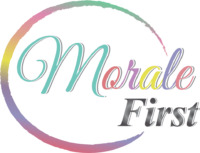TRAININGS AND WORKSHOPS

We work with our clients to offer strategic learning curriculums. Our trainings and workshops are designed to empower leaders and their workforce to recognize and respond to the importance of Diversity, Equity, & Inclusion in the workplace. The topics listed are just a sample of some of our offerings. Please reach out if there is a specific need and we will work with you to customize curriculum that speaks to your business goals and objectives.
The Art of Inclusive Leadership

- Become An Inclusive Leader -
Work through real life scenarios that allow you to contemplate and learn best practices for a successful and equitable business. Walk away with a customized inclusive leadership plan that will continue to encourage you to be the best leader that you can be.
Successful leaders are Inclusive leaders. Our course prepares executives and managers to lead with compassion, understanding and awareness. Did you know that diverse organizations are always more successful than homogeneous ones?
Check your biases and walk away with tools that you can use throughout your professional and personal life.
With your certificate of completion in hand, you will walk away prepared to be a successful and inclusive leader.
This workshop includes interactive activities and the tools needed to build a customizable Inclusive Leadership Plan.
Learning Outcomes (Not Limited To)
- Learn why diversity isn’t enough. Equity & Inclusion are essential parts of a successful business.
- Learn to recognize, challenge & revise unconscious biases.
- Learn to set expectations, lead by example, and hold others accountable.
- Master the art of leading with diversity, equity &inclusion.
- Understand how & why most companies fail to lead inclusively.
- Discover why biases are dangerous and how you can reconcile with them.
- Create a customized inclusive leadership plan.
8 Components of an Inclusive Work Environment

- Different Perspectives Create Wonderful Outcomes -
Creating a diverse and inclusive work environment is a win-win for all. Employees are more fulfilled and businesses grow. Productivity is boosted and creativity flourishes.
The thing is your environment must be one where everyone feels as though they have a voice.
The people that you recruit come with different life experiences, ideas, skills and approaches to doing things. Having the ability to tap into the variety that this presents is a win for your organization.
This training walks team members from all professional levels through 8 components that build a healthy foundation for an Inclusive Work Environment.
Learning Outcomes (Not Limited To)
Participants walk away with a solid, realistic and sustainable foundation and plan for nurturing an inclusive work environment.
The complexities that come with “Culture Fits” and how to eliminate and problems that may derive from such.
- How Accountability plays a part in the sustainability of your Diversity, Equity & Inclusion efforts.
Microaggressions In The Work Place

Learning Outcomes (Not Limited To)
- Acknowledging and accepting that microaggressions are a very real thing, and that they create very real problems.
- Styles & types of microaggression.
- How microaggression affects your colleagues & your business.
- Discussions & discovery about combating microaggressions in the workplace.
- Not as Small as They Seem -
Microaggression is not just another buzz term when it comes to factors that aid in crippling real equity within the workplace. It’s been stated time and time again that it is one of the most prevalent factors when discussions are held about creating sustainable environments for marginalized groups of people. Leaders and employees alike are guilty of committing these microaggressions. Most of the time it’s done with an undertone of “fun”, but in reality, it is a result of discomfort and unconscious biases.
While microaggressions are subtle, they create huge challenges for people that feel disparaged in the workplace. Sadly, a culture that breeds microaggression typically makes it easier to exclude vulnerable employees in terms of gender, sexuality, race, ethnicity, religion, age, ability, etc.
Much like all topics or words centered around challenging our biases, a great deal of the time, even mentioning the word microaggression, causes the accused to become defensive. On the opposite side of things, those that are victims of the behavior, feel devalued and demoralized.
This workshop helps participants to see how easy it is to fall into a routine of practicing and accepting microaggressions, and how much damage these actions cause. We will also discuss productive ways to address said actions, while replacing them with more honest and open communication that creates a win-win for all parties.
Allyship for Leaders Training Series

- Understand the Value of Allyship -
True allyship is opening doors for the marginalized that they cannot open for themselves.– Talisa “Tali” Lavarry TedX Women Seattle, WA
This 3-part series gives leaders the space to understand the value of allyship and the important role that it plays in creating a more inclusive environment within the workplace. While allyship may sound easy, it comes with a variety of nuances and complexities that true allies should be aware of.
Before approaching the doing of allyship participants will learn about the impact of microaggressions, the propensity to operate with bias, and the high probability of blind spots that they may have never been challenged to consider.
We believe that every individual has the ability to push beyond their defaults in order to be better leaders, and most importantly better allies.
This training is for leaders that look forward to understanding how they can successfully challenge their own processes, think through situations differently, increase the value within their own professional and personal lives and most importantly begin to understand how important it is to make a commitment to do no harm.
Effective Allyship in the Workplace

- Privilege to Aid in the Fight Against Racism -
More than ever White America is having to take a look at race. While many white American have taken comfort in knowing that racism wasn’t an issue that they had to deal with, we are all becoming more aware of the impact that it has had on all of our lives. White people have adopted the idea that being “colorblind” is anti-racist, however; this approach acts as a shield in which implicit biases and underlying racism hide behind.
White Allies see color vividly and use their privilege to aid in the fight against racism in the workplace.
As a white ally it is imperative to understand that there are natural born privileges that come with being a white person in America. More than ever whites are being petitioned to stand up and utilize their privileges in order to assist with the eradication of racism.
This workshop defines and discusses terms that have surfaced since the 20th century civil rights acts and movements. Participants are challenged to step outside of themselves in order to take a hard look at the systemic racism that runs rampant in the workplace. Now is the time to shed the notion of colorblindness and recognize your black employees and colleagues for who they are and the injustices that they suffer each day within the workplace.
Learning Outcomes (Not Limited To)
Review and discuss the history of whiteness and racism in America.
Acknowledge and embrace that racism is denied, minimized, and justified in the workplace and beyond.
Learn and understand the things that your black employees and colleagues need from white allies in the workplace.
Become more comfortable with being an advocate for your black employees and colleagues while promoting conversations that will help advance equity in the workplace.
Acknowledging your white privilege and how to use.
Resources and Solutions for a sustainable approach to truly initiating and nurturing change.
Egregious Doesn’t Mean Exaggerated

Learning Outcomes (Not Limited To)
- Acknowledging and accepting that egregious things genuinely happen to innocent and undeserving people.
- Adapting a willingness to hear the truth about egregious acts that may have taken place, no matter how hard it feels.
- Discussions & Discovery about effective ways to create an environment that makes it difficult for anyone to get away with egregious acts that hurt or offend their colleagues or clients.
- Egregious is outstandingly bad -
Some similar words are horrifying, appalling, shameful and unspeakable. Truly thinking about these words alone can cause some to pause in discomfort. We typically don’t look forward to engaging in, or being a part of scenarios that are considered egregious.
If we are honest, it can be hard to hear a story that’s considered egregious.
We are of the school of thought that this is the case for a few reasons. Some of them discussed in this session are:
- When we hear about problems some part of us feels responsible for fixing it, or we feel guilty because we believe that we can’t.
- Most of us want to believe that people are good and have good intentions.
- Some people view the storyteller as a troublemaker or bearer of bad news.
- Many subscribe to the school of thought that there are always three sides to every story.
When it comes to systemic oppression that’s rooted within a workplace, manipulation is a huge factor. Members of teams that are likely to initiate egregious acts against marginalized groups of people, can typically count on a number of factors to protect them from any recourse regarding their behavior.
Leaders and employees alike could potentially make egregious statements or initiate and or participate in egregious acts. Most of the time this is done as a result of ego, discomfort and unconscious biases.
While microaggressions are subtle and most of the time more common in work environments, egregious acts are absolutely a very real thing. Sadly, a culture that makes space for egregious acts is typically detrimental and unsustainable for vulnerable employees in terms of gender, sexuality, race, ethnicity, religion, age, ability, etc.
This session helps participants realize how easy it is to be swayed by their own biases when they hear stories about egregious acts in the workplace. We take a hard look at how much damage these actions cause, and how important it is to be open to both discovering and hearing the truth. We will also discuss productive ways to address these actions, while setting a standard expectation for all members of your team.
